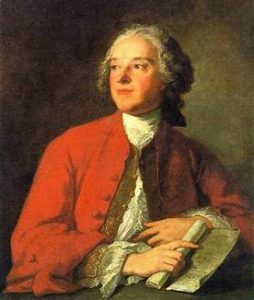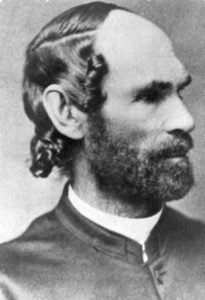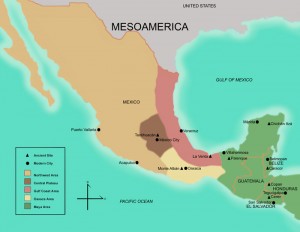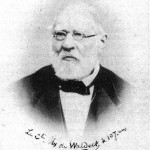Central America
Cassinelli, Dennis
Dennis Cassinelli is a historian and writer from Nevada, who has written: “on topics that range from  American Indian stone tools to the Great Basin to the history of the Comstock Lode”. In his 2009 book, Uncovering Archaeology[1612], he outlines in some detail his Atlantis theory, which he locates in Central America (a).
American Indian stone tools to the Great Basin to the history of the Comstock Lode”. In his 2009 book, Uncovering Archaeology[1612], he outlines in some detail his Atlantis theory, which he locates in Central America (a).
>In a 2019 newspaper article(c) Cassenilli wrote “Being an avid reader, I happened to read a few chapters in the Book of Mormon one day from a historical perspective. I found that the Mormons believe that Jesus Christ did in fact survive the Crucifixion and was able to make his way, most likely on a Phoenician ship, to Central America where he resumed teaching his Gospel to the Mayan natives.”<
He suggests that Phoenicians landed in Central America and on seeing the Mayan cities concluded that they had landed in Atlantis. Jason Colavito had a few comments to offer regarding this idea(b).
(b) https://www.jasoncolavito.com/blog/nevada-author-claims-phoenicians-mistook-maya-cities-for-atlantis
(c) https://mesquitelocalnews.com/2019/01/29/lost-continent-of-atlantis-rediscovered/ *
de Pauw, Cornelius
Cornelius de Pauw (1739-1799) was a Dutch geographer and philosopher, who, although he never visited the continent, was  considered a leading expert on America and in that capacity, he was a contributor to Diderot’s Encyclopédie. In a 1768 book[1305]+ he claimed that the location of Atlantis had been in Central America.
considered a leading expert on America and in that capacity, he was a contributor to Diderot’s Encyclopédie. In a 1768 book[1305]+ he claimed that the location of Atlantis had been in Central America.
DePauw cites Pliny to explain the Egyptian habit of counting lunar cycles as ‘years’.
He also referred to the apparently exaggerated lifespans of the biblical patriarchs explaining that it was widespread in the Middle East, and further afield, to name a dynasty or family after its founder and attribute the total years of its reign to that founder.[1576.258]
[1305]+ https://archive.org/details/recherchesphilo00conggoog * (French)
[1576]+ https://archive.org/details/philosophicaldi00thomgoog * (French)
Fontaine, Edward
 Rev. Edward Fontaine (1814-1884) was a minister in the Methodist Episcopal Church, a politician and the author of How the World was Peopled[1277] in which he favoured the opinions of Brasseur de Bourbourg, who had identified the land of the Toltecs, in Central America, as the home of Atlantis, citing a comparison of Plato’s description of Atlantis with that of the mythical kingdom of Xibalba, similar to Donnelly’s later suggestion.
Rev. Edward Fontaine (1814-1884) was a minister in the Methodist Episcopal Church, a politician and the author of How the World was Peopled[1277] in which he favoured the opinions of Brasseur de Bourbourg, who had identified the land of the Toltecs, in Central America, as the home of Atlantis, citing a comparison of Plato’s description of Atlantis with that of the mythical kingdom of Xibalba, similar to Donnelly’s later suggestion.
Fontaine adds quotations from classical writers as well as Humboldt in support of this Toltec theory[p.136-140]. However, most of the ideas in the book are now long outdated.
Lopateki, M. De
M. De Lopateki was an occasional contributor at the end of the 19th century to the now defunct Los Angeles Herald. In an article(a) on January 5th 1896 entitled “True Atlantis” in which he disagreed with details of Ignatius Donnelly’s then recently published, Atlantis. Donnelly proposed the Azores as remnants of Atlantis, while Lopateki argued that the total lack of any traces on the islands of a ‘high culture’ would seem to contradict Donnelly.
However, Lopateki proposed that the civilisations of Mexico and Central America were superior candidates for the title of ‘Atlantis’.
(a) https://cdnc.ucr.edu/cgi-bin/cdnc?a=d&d=LAH18960105.2.47
Kolb, Dustin
Dustin Kolb is a German researcher who has opted for a Mexican location for Atlantis(a)(b). Somehow or other he arrived at the conclusion that Plato’s description of Atlantis could only have been a reference to America. His then ‘reasoned’ that since the capital of Atlantis was in the middle of Plato’s island, this must have been a reference to Central America! Moving steadily along, he next decided that the concentric rings of the Atlantean capital could only have been an impact crater. He finally settled on the region of Lake Texcoco in the Valley of Mexico as the original home of Atlantis.
His idea of Atlantis in Mexico is not original, having been first proposed over a century earlier by Louis de Launay and has Gene Matlock as arguably its best known modern proponent. I was not convinced by Kolb as he failed to explain either why or how an attack could be launched from Mexico across the Atlantic to the eastern Mediterranean. He also fails to explain how a Mexican Atlantis had control of the western Mediterranean without leaving any archaeological evidence to support such a contention. Finally, his explanation that the ‘elephants’ recorded by Plato were probably “bulls and bison” is, in my opinion, pathetic.
(a) https://atlantisforschung.de/index.php?title=Atlantis_lag_in_Mexiko (German)
(b) https://www.academia.edu/3385512/Atlantis_in_Mexico?email_work_card=view-paper (Ger)
Mesoamerica
 Mesoamerica is the term used to describe a region which includes Mexico and Central America that was home to a number of important pre-Columbian cultures including that of the Mixtec, Toltec and Maya peoples. When news of Columbus’ rediscovery of America got back to Europe it did not take long for theories linking the ‘New World’ with Plato’s Atlantis to develop. While most initial speculation focused on the idea that America was Atlantis. As time went by, this concept was downgraded to just identifying America as the home of refugees from Atlantis, usually located in the Atlantic.
Mesoamerica is the term used to describe a region which includes Mexico and Central America that was home to a number of important pre-Columbian cultures including that of the Mixtec, Toltec and Maya peoples. When news of Columbus’ rediscovery of America got back to Europe it did not take long for theories linking the ‘New World’ with Plato’s Atlantis to develop. While most initial speculation focused on the idea that America was Atlantis. As time went by, this concept was downgraded to just identifying America as the home of refugees from Atlantis, usually located in the Atlantic.
By the 19th century the similarity between the pyramids of Mesoamerica and those of Egypt began prompting the thought that Egypt may also have been home to Atlantean refugees. However, further comparisons of ancient Indian architecture with that of ancient Central America has led to a set of new theories(a) that generally excludes Atlantis. While Jim Allen has illustrated(c) a number of interesting cultural links between Mesopotamia and Bolivia, Richard Cassaro has published(b) an extensive series of images linking Egypt and Mesoamerica.
>(a) https://web.archive.org/web/20200217000546/http://www.hinduwisdom.info/Pacific.htm<
McCulloch, John Ramsay (L)
John Ramsay McCulloch (1789-1864) was a Scottish economist and a prolific writer. He is frequently credited as a geographer and with supporting Central America as the location of Atlantis in his extensive 1841 publication, A Dictionary: Geographical, Statistical and Historical [1321.V1.89] .
Waldeck, Jean-Frédérick
 Jean-Frédérick Waldeck (1766-1875) was a French explorer and artist. He spent time in Central America recording Mayan temples and glyphs in a style that suggested possible links with various ancient European and Asian civilisations. It is also claimed that he linked the Maya with both Egypt and Atlantis.
Jean-Frédérick Waldeck (1766-1875) was a French explorer and artist. He spent time in Central America recording Mayan temples and glyphs in a style that suggested possible links with various ancient European and Asian civilisations. It is also claimed that he linked the Maya with both Egypt and Atlantis.
Waldeck also provided the illustrations for Brasseur de Bourbourg’s 1866 book[1506] on the Mayan monuments, particularly Palenque.
Waldeck was always secretive regarding aspects of his life and by his own estimate was 109 when he died, the image here claims to have been taken when he was 107 years old!
Survivors
Survivors of the Atlantean destruction are a reasonable expectation given the extent of its influence as described by Plato. The fact that its rulers only met every few years suggests a geographical spread that must have left some, if not most, of the confederation intact, irrespective of the location of the earthquake’s epicentre. Some have proposed that survivors migrated to an extensive range of locations such as Egypt, the Middle East and the Americas, but offer little to substantiate their claims apart from the widely dispersed flood myths that are most likely to have arisen following the melting of glaciers at the end of the last Ice Age.
Sanchuniathon refers to the original kings of Egypt calling them ‘Aleteans’. Albert Slosman claims[551] that survivors from Atlantis had migrated to Egypt. The archaeologist, Marcelle Weissen-Szumianska, in a 1965 book, Origines Atlantiques des Anciens Egyptiens [837], maintained that the pre-pharaonic Egyptians originated in Atlantis, which had been situated in Morocco! Others suggest that Egypt was an Atlantean colony.
Egerton Sykes proposed that the Tuatha deDanaan were refugees from Atlantis in his 1949 edition of Donnelly’s Atlantis. Sean Welsh is one of several who have labelled the Sea Peoples as Atlantean refugees.
All the suggestions put forward are either pure speculation, invention or allegedly derived from some psychic source. W. Scott-Eliot claimed [543] that refugees from an Atlantic Atlantis fled westward to Mexico and became the Toltecs and eastward and built Stonehenge ln Britain! While other European cultures have also had Atlantean roots attributed to them, the most frequently named are the great civilisations of Central and South America – Aztec, Mayan and Incan. Posnansky went as far as to suggest that Tiwanaku in the Andes was built by Nordic refugees from Atlantis! Proof, however, is lacking in all cases.
Erikson, George
George Erikson is an anthropologist and the co-author with Ivar Zapp of a book[244] that promotes the idea of a connection between Atlantis and Central America. There is a recording of an interview with Erikson available on the Internet(a).
*In 2006, Erikson was employed by National Geographic to assist with a documentary entitled Atlantis: Is it Real?(b) The documentary itself was pedestrian, ending on a fairly sceptic note(c). Erikson’s contribution focused on his claim that Maya civilisation has been influenced by refugees from Atlantis! In my opinion, he was not convincing.*
(a) https://www.jerrypippin.com/Paranormal_George_Erikson.htm
*(b) https://www.dcourier.com/news/2006/oct/02/atlantis-theory-by-local-anthropologist-makes-nat/

